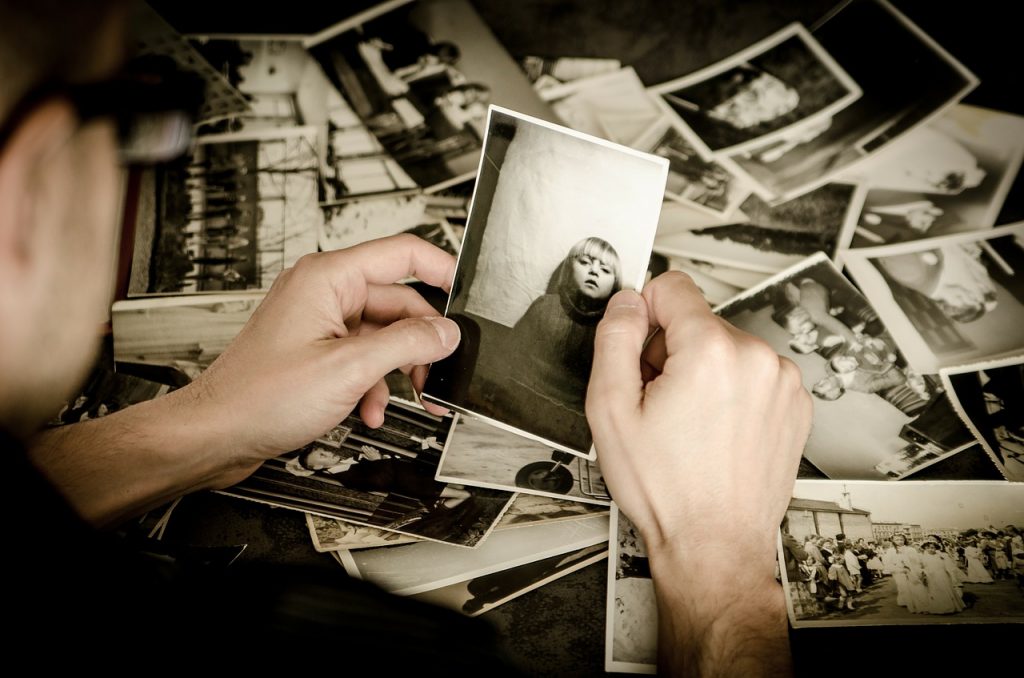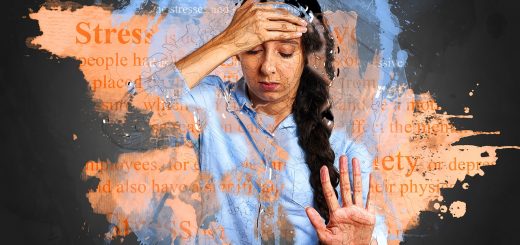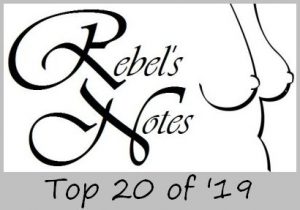Memories: Fiction, Truth and Amnesia

Memories are a way to recall past events. They are a way to remind us of what has happened: either to make sure that we avoid situations that caused us pain in the past, or to make us feel better by thinking about good times that we have experienced. Everyone has memories, they evolutionary make sense. Without memories we wouldn’t know who we are, we wouldn’t be able to survive as individuals or as a species. And because we as human beings have the tool of language, telling a story of the past is also a way to socially connect to others.
It doesn’t seem too complicated, does it? Unless, well, unless you don’t remember things that would make sense for you to have a recollection of. Unless, your memories don’t make sense, get questioned or are being dismissed. We all take memories for granted truths of events we remember. We don’t think about why or how we have them. For me, reflecting around the nature of memories has become extremely important.
It is all Fiction
The great historiographer Hayden White once said that “All history is fiction”. Within historiography there has been an ongoing debate about the scientific value of history and history writing for decades now. It can be difficult to find any kind of objective, scientific and neutral account of anything, The language we choose, the focus on certain events, the mood we are in, everything colours how we look at a past situation. We interpret the moment we express something about a past event. What does this have to do with memories? Well, a lot. Because sometimes everything is a blur. Because sometimes we don’t know what is true anymore. Because sometimes our memory of an event differs greatly from how someone else remembers it. What is the truth then? How do we know what we remember is true? How can we trust ourselves, or others, with accounts of events?
Back to Hayden White. He basically claimed that all history writing is fictional writing. If someone tells us about an event, might it be an academic or your neighbour telling you how the woman across the street has an affair with the gardener, always remember that everyone uses narrative strategies: they want a reaction, they want to be seen in a certain light, they want things to look a certain way. This is not even a conscious decisions, it happens on a subconscious level. It is called storytelling, you want to excite but also convince the audience. That leads to that no one, absolutely no one, holds the total and universal truth about anything. The core of what happened is always packaged with tapes of perspectives, wrapping paper of ideologies and ribbons of narrative strategies.
The Grand Narratives
I thnk that makes sense, that the truth and any account of any event, get coloured by the narrators intentions, perspectives, ideologies and use of language. The lovely Lyotard (yes, haha, it is very close to leotard, lets giggle at that for a second. Okay? Done?) wanted to crash and burn the grand narratives, also known as meta-narratives. It was a quite deconstructive approach. He said (I am going to simplify because honestly, he was also one of those people who wrote postmodern theory in a modernist way) that all the great philosophical theories, all the universal truths of ideologies, all the histories told by victors, were grand narratives that everyone is expected to agree on, but that no one actively agreed on. We just go with them without questioning them.
I think his main target was Enlightenment, but his idea can be applied to so much! Like how history is often told by those in power, or those whose theory, army or ideology “won”. And I think Lyotard’s idea can be applied to our own private and personal lives. For instance when a whole family agrees on denying abuse, or when someone is gaslighted and things they remember are kind of deleted from accounts of events (bullying at school for instance, or if someone is a witness to something that the majority or those in power deny happened).
So what is the truth then?
I know I made this complicated. But I really needed to figure this out for myself: what a memory is and how much of it holds a truth. I will get to why this is so important to me, in a moment. So basically: there is no true memory, there are many perspectives and different ways of telling a story. No one holds the absolute truth. And that doesn’t have to be a bad thing, either.
White thought it would be best to record what witnesses say, hear it from their mouths, record it, and that those accounts can be as close to the truth, to the reality of an event, as possible. Because those who experience something and were there, know what really happened. And with that approach, you get as many perspectives as possible, and you can draw your own conclusion. It is still storytelling, though. But is is more organic than reading someone else’s summary, that is tainted with new perspectives, intentions, ideologies. I personally feel that this is a very hermeneutic approach, seeing how the small relates to the grand narrative, that the grand narrative is interconnected to everyone’s individual experience.
Lyotard went into a similar direction. Instead of the meta-narratives, we have micro-narratives. Every perspective, every voice, every experience. We don’t exclude but include now, we have a lot of systems of signs, languages, experiences, that all clash, but all describe the same thing. This can be applied again to about anything, from a historical event, to how Christmas with your family was last year.
Dissociative Amnesia
So basically, if you ever wonder if your memory about an event is correct, or if what someone is telling you is the truth, it is a good approach to get different perspectives on the event. But that leaves me with the question of when can you actually trust your own memory when it is hard to get another perspective? I am asking that question because I suffer from dissociative amnesia, and I don’t remember most of my life.
As I have talked about a few times, I am diagnosed with Dissociative Identity Disorder, That means that trauma during my childhood has shaped my brain differently from healthy people. My memories are not linear, but they are compartmentalized into different parts. When a traumatic event happened, my brain needed to disconnect from that pain and went into dissociation. And then the memory of the event was placed inside a box in my mind that I can’t access. That happened so I was able to survive emotionally and physically. In Dissociative Identity Disorder these parts or boxes are called alters, personalities, identities or headmates. They are personalities that are based on a specific time in my life: children who have been through abuse, teens who have witnessed violence, adults who graduated from university.
I, who is also an alter, the one writing this, this I, doesn’t have access to most of the memories of her body’s life. I never really thought about it until someone pointed out that I don’t remember dates, times and important events from my childhood and teenage years. And I tried to remember, hard. But I couldn’t. Because they are not in my box. These memories are archived in the 27 other alters in my system.
I actually have a good memory. If I was the one experiencing something, I can tell you about things in detail. I am good at studying, remembering song lyrics and movie quotes. But I don’t remember my life, and sometimes I don’t even remember parts of my day, because I wasn’t the one “fronting”, I wasn’t the one experiencing it. They are not my memories.
I can’t even tell you how confusing this is. I mean, we all take for granted that we have memories of our childhood, right? But I don’t have any. The other alters do, but I don’t. And I don’t have access to them unless the alters decide that they can share them with me, or my brain decides I am ready.
Movies in My Head
And what happens when I suddenly get a memory from my past? It is like a movie, I am watching this happening to someone else. This isn’t happening to me, but the alter that experienced it. It is extremely confusing and I have lost my mind over this so so many times! I am questioning the validity of the memories. Am I making this up? Why do I have these fucked up movies in my head, am I some kind of pedophile? Why am I lying?
But then, who am I telling the content of these movies to? No one. So why would I lie to myself? It all makes no sense because I have always thought I am like everyone else, linear chronological memories that make out the grand narrative of my life. But boom, I have a lot of micro-narratives, lots of perspectives, on the story of my life, of this body’s life, of my system’s life.
Part of my reluctance to see those movies as genuine memories is my lack of emotional connection to them. But a more important part is that I don’t want to believe them. I don’t want them to be true, and that is why I try to disregard them. The few things I have shared with professionals and my partners, were believed. Professionals and my partner believe my memories more than I do. Because they make sense in the grand scheme of things: they explain why I behave the way I do and why my bran is fragmented as it is. Why my body is broken as it is.
Let me give yon an example. Please skip this part if you are easily triggered by stories of childhood abuse.
I have an alter, A. She is 8 or 9 years old. She is a trauma holder, meaning that she remembers a lot of trauma. She got triggered today by something we read in a support group for people who have been through childhood abuse. She got reminded of something that she went through. I saw the movie in my head, but I wasn’t fronting, she was. The memory has to do with someone holding a hand over the body’s mouth so her screams can’t be heard.
A was so stuck in that memory that she tried to soothe an abuser that wasn’t there today. She wanted to make them “finish” so she wouldn’t be punished for being a “bad whore that can’t make men finish”. I know it sounds terrible, and she was screaming, crying, panicking. Today. I could sense all of her feelings, I watched it all from her eyes. I wanted to soothe her, hug her, save her. I knew these memories weren’t mine, but they are part of me.
—- triggering part over —-
If I see an overwhelming memory like that in my mind, I question its validity. I question my own sanity. Surely I would remember a thing like that? But I didn’t. So does that mean I am lying? That my mind is lying? Is A even real? What are memories? I can’t grasp it.
We are all storytellers
But then I look at what all those smart philosophers are saying. Maybe my mind consists of many micro narratives of my life. None of the narratives in my head are telling the truth about everything of my life. But they are showing me parts of my life, that I can puzzle together as the story of my system, of this body, of every alter inside my mind. Our story is being told differently than other people tell their stories. And that is okay. That doesn’t mean it is less valid, less true, less important. In the end, memories are subjective
I think people in general need to be more aware of the grand narratives in their lives. The truths that we have always been told. We all live under them, in all aspects of life. If your memory of something clashes with the grand narrative, you can always try to question the grand narrative instead of your memory. You can go down to the micro-narratives, ask others and realize that even they have another perspective than what the seemingly unquestionable truth has.
Just be aware of your own perspectives, be aware of other people’s perspectives, be aware of that truths that seem universal are not that, and that there are facts that can not be changed. Your memory is your memory, all the emotions connected to that memory (might they come in form of positive triggers or flashbacks) tell a story of the truth, and going down to what other individuals recall or think can be a helpful tool to question the fake universal truth of the grand narratives. We are all storytellers.











I did skip the abuse but this is a fascinating post and I am so with you regarding what is the truth where memories are concerned. Many people have false memories and of course as you say people will always perceive things differently.
With my writing I often take a memory – which I believe to be true – and put it into a fictional setting and make a story around it . I have a tag on my blog “fictionalised” for this type of story – where the post is part true part fiction.
I am going on a bit but i love writing this way because I too think history is like that. Things that happened get tainted or embellished etc.
x <3
I don’t think people need to beat themselves up about not remembering things correctly. No one does and it is okay that we tell stories the way they make sense to us. There is definitely a difference between a false or subjective and a lie.
I love your way of writing, our memories can definitely spark new fantasies too! Storytelling, but in a different way.
Thankyou for sharing your story DS. It’s a fascinating look at memory and an insight into what it is like for someone living with DID.
Great writing and a great contribution to Food 4 Thought.
Thank you so much for your kind words <3
A really insightful and moving post DS, I don’t have DID but I can relate to my childhood memories as being a series of out of order events rather than a continuous timeline narrative. My brother and I sat one time and tried to work out what happened when and what ages we were, my mum was able to provide clarity over some of them. It’s good to triangulate a few memories to see the extent of false memory. Thank you for sharing such a personal post x
It is absolutely confusing to not have any clear recollections of what has happened in the past. It just really makes you question if what you remember is the truth, or what more is really in your mind that you don’t know about yet.
I am not really in touch with my family anymore, so it is hard for me to find any kind of feedback. I could ask my sister but she has been through similar things, and I wouldn’t want to trigger her.
It is what it is. *shrugs*
Thanks. Kis <3
Very interesting and informative DS. I can’t imagine what this feels like or how frustrating it can be but you show us in many ways.
Thank you!
This is fascinating. Really informative and thoughtful, and you’ve explained some complicated theories really clearly. Terrific post. 💖
Thank you, Jupi!
well put
Thanks!